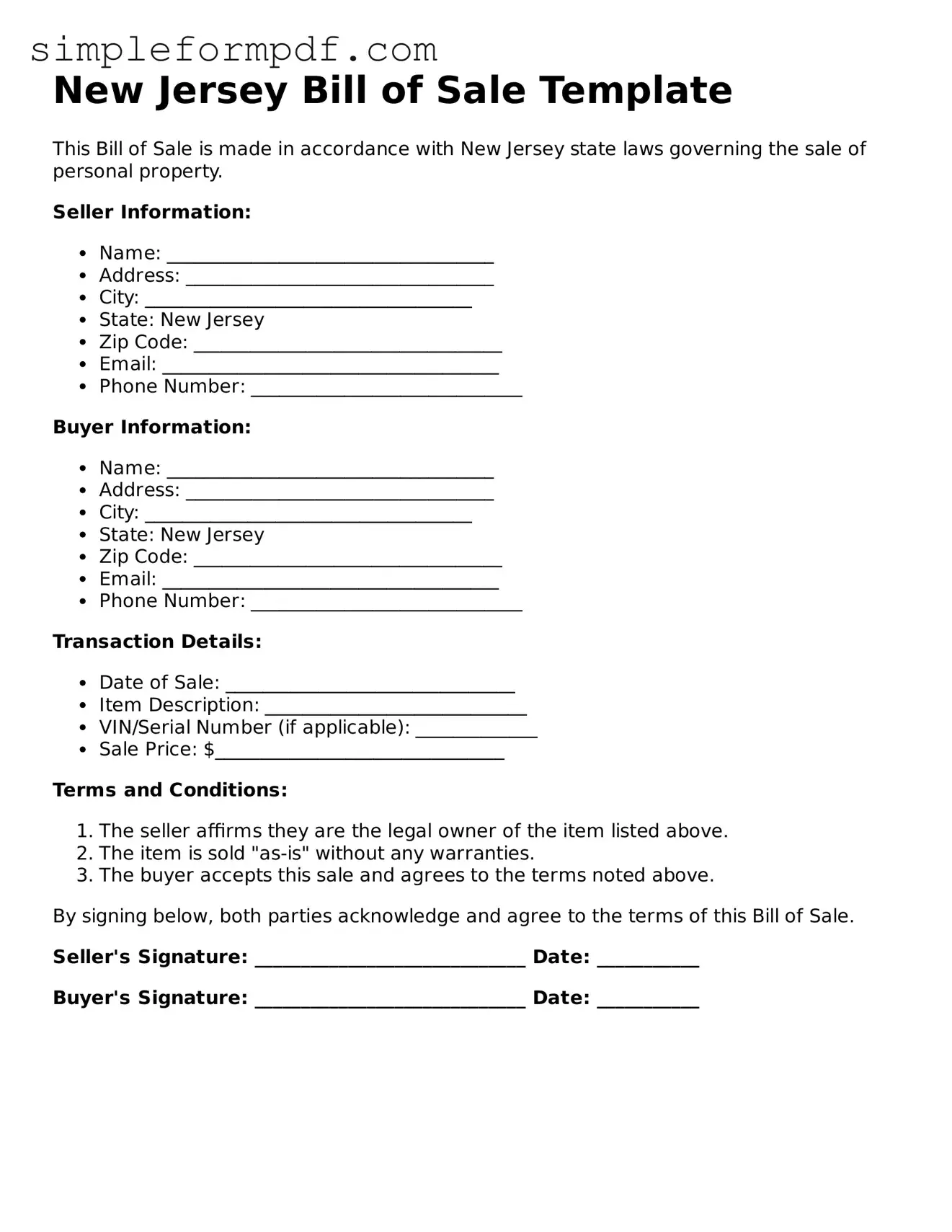Free Bill of Sale Form for the State of New Jersey
A New Jersey Bill of Sale is a legal document that serves as proof of the transfer of ownership of personal property from one party to another. This form is essential for ensuring that both the buyer and seller have a clear record of the transaction. To streamline your process, consider filling out the form by clicking the button below.
Launch Editor

Free Bill of Sale Form for the State of New Jersey
Launch Editor
Need instant form completion?
Finish Bill of Sale online in just a few minutes.
Launch Editor
or
Download PDF
